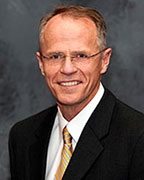Higher-ed presidents respond to Trump’s DACA reversal

This archived article was written by: Scott Froehlich
On Sept. 5, Pres. Donald Trump announced his plan to reverse the Deferred Action for Childhood Arrivals program, otherwise known as DACA. As a gesture to allow Congress an opportunity to “redraft” the 2012 memorandum, Trump gave a six month window to the legislators before he would make his decision official. DACA, an executive order enacted under the Obama Administration, protects children of illegal immigrants from deportation, but under several conditions. Firstly, the children have to have lived in the United States continuously since June 15, 2017. They also need to have been under the age of 16 prior to their entering the country. Furthermore, to qualify for a visa under the DACA program, these applicants are required to be currently enrolled in some form of schooling and must be free of any felonies or other significant misdemeanors. According to the Pew Research Center’s findings earlier this year, approximately 790,000 undocumented immigrants have benefited from DACA program since its implementation and may face deportation if it doesn’t get revised through the House and Senate. Throughout the nation, citizens and non-citizens alike are protesting this decision, attributing their dissenting response to a decision they believe flies in the face of American ideals and values. Locally, the Utah Commissioner of Higher Education, and the eight public college presidents (including USU’s president Noelle Cockett), recently sent a letter to Utah’s congressional lawmakers, urging them to support a legislative solution that will keep DACA intact and continue to preserve the quality of life that these students have enjoyed as “Dreamers.” Utah State University’s Chancellor Joe Peterson voiced his opinion on the matter, and expressed what his feelings were upon hearing Trump’s announcement. “I was disappointed,” Peterson said. “They know no other home; America is their home. They have been contributing to American society, and their dream is to continue contributing to American society.” Peterson also noted the timing and seemingly disorganized process that was laid out for Congress to follow. “Even though there is a promise that there will be some legislative solution, I thought the proper way of handling it was to devise the legislative decision, then announce sunset on DACA. Not announce the sunset on DACA, and [then] promise some future legislative solution,” he said. When asked about the consequences that the rescinding of DACA might have on USU Eastern, and the enrollment status moving forward, Peterson said, “[The] solution may be to establish, by law, what has been the case under the Obama
Executive Order. And if that solution is what is devised, there won’t be any impact on enrollment. “If there is no solution, and DACA is rescinded, we will lose those…students and their contribution to our region, and to our state. And that seems a shame to me,” Peterson said. According to Peterson, USU Eastern has roughly two dozen “Dreamers” who are currently enrolled. “You would need all of you fingers and all of your toes; and maybe your friend’s fingers and toes to count them.” Regarding the personal impact on students across the nation, Peterson didn’t mince words. “Education is about opportunity. One of the biggest policy questions in education is who gets access to what opportunities. Barriers and mechanisms control who gets what opportunities… In general, we are very reluctant to restrict opportunities based on people’s origins. We have a faith in the “American Dream…,” [and] that you don’t have to occupy exactly the same rank that your parents did,” he said. The biggest question, for those who are looking to help in the fight to retain the DACA program and keep these students in college and in the country, is what are their options? “Students can help by being aware of this issue, forming their own opinions [and] participating in the political process. [They] can help by contributing to civil dialogue about the issues. Even-tempered, open-minded discussion; then they can vote. “One of our problems in the United Sates is [that] our discourse has been degraded by insults and instances of uncivil, impolite discussion of political issues. Be civil…be polite…learn the truth and be motivated by the truth… and vote,” Peterson remarked. Only time will tell what, if any, resolution to this controversial program is passed within the next six months. Regardless the outcome, thousands of Dreamers will be waiting with bated breath while watching their futures hang in the balance.




